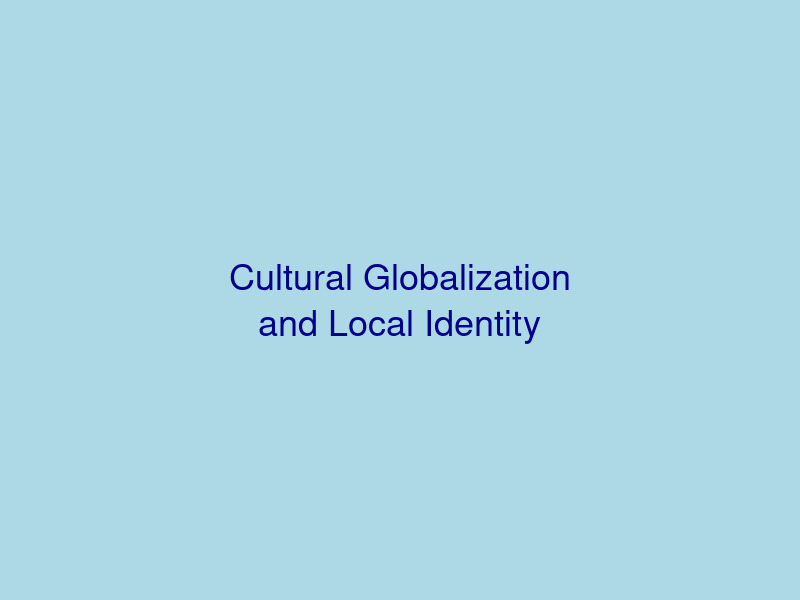Article Information
Authors: John Smith, Maria Garcia
Published: June 15, 2025
DOI: 10.xxxx/jghhss.2025.01.001
Journal: Journal of Global Humanities and Social Sciences
Volume: 3, Issue 2
Pages: 45-67
Abstract
This comparative study examines the complex relationship between cultural globalization and local identity formation in urban communities across three major metropolitan areas. Through ethnographic research and survey data collected from residents in New York, London, and Tokyo, we analyze how global cultural flows interact with local traditions and practices.
Our findings reveal that rather than simply homogenizing local cultures, globalization creates new hybrid forms of identity that blend global and local elements. Urban communities demonstrate remarkable resilience in maintaining their distinctive characteristics while simultaneously adapting to global influences.
The study contributes to ongoing debates about cultural authenticity in an increasingly interconnected world and offers insights for policymakers working to preserve local cultural heritage while embracing global connectivity.
Keywords
Cultural Globalization Local Identity Urban Communities Ethnography Cultural HybridizationArticle Content

Figure 1: Urban cultural expressions in three metropolitan areas
Introduction
The phenomenon of cultural globalization has fundamentally transformed how communities construct and maintain their local identities. As global cultural flows increasingly penetrate local contexts, urban communities find themselves navigating complex negotiations between preserving traditional practices and embracing cosmopolitan influences.
Methodology
This study employed a mixed-methods approach, combining ethnographic fieldwork with quantitative survey research across three major urban centers. Over 18 months, we conducted participant observation in local cultural events, interviewed community leaders, and surveyed 1,200 residents about their cultural practices and identity formation.
Findings
Our analysis reveals three key patterns in how urban communities respond to cultural globalization:
- Selective Adaptation: Communities actively choose which global elements to incorporate while maintaining core local traditions.
- Creative Hybridization: New cultural forms emerge that blend global and local elements in innovative ways.
- Strategic Resistance: Some communities deliberately emphasize local distinctiveness as a response to homogenizing pressures.
Conclusion
Rather than viewing globalization and local identity as opposing forces, our research demonstrates that urban communities actively negotiate these influences to create dynamic, evolving forms of cultural expression. This process of cultural negotiation represents a fundamental aspect of contemporary urban life.
About the Authors

Dr. John Smith
Professor of Cultural Anthropology
University of California, Berkeley

Dr. Maria Garcia
Associate Professor of Sociology
London School of Economics